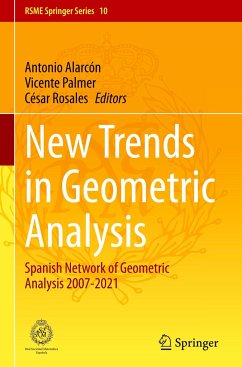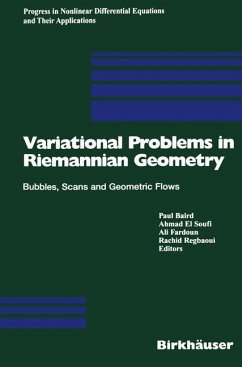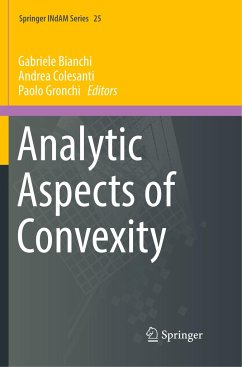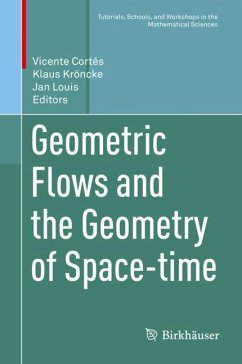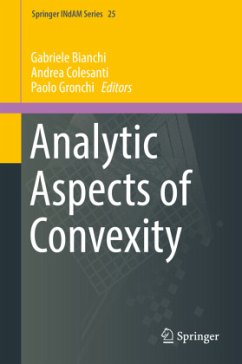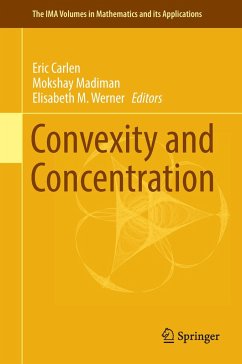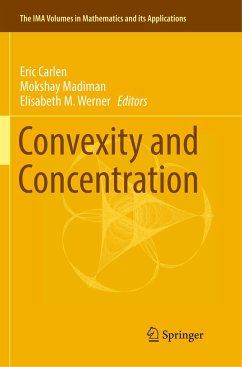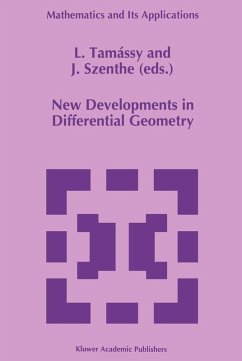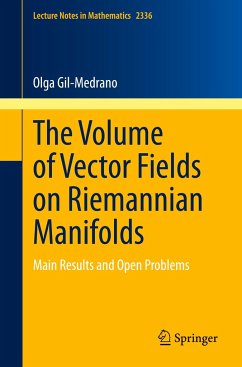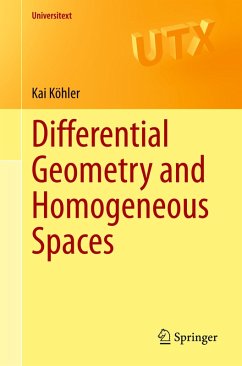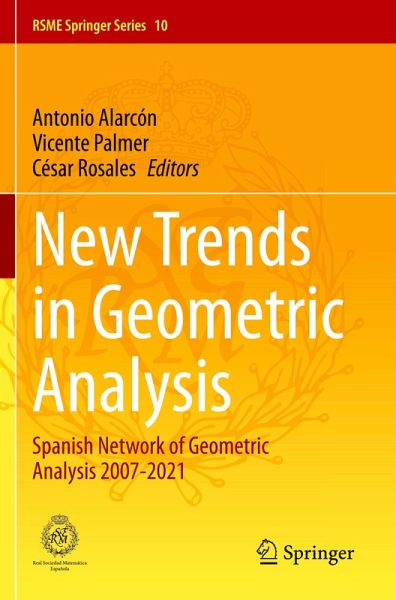
New Trends in Geometric Analysis
Spanish Network of Geometric Analysis 2007-2021
Herausgegeben: Alarcón, Antonio; Palmer, Vicente; Rosales, César
Versandkostenfrei!
Versandfertig in 6-10 Tagen
113,99 €
inkl. MwSt.

PAYBACK Punkte
57 °P sammeln!
The aim of this book is to provide an overview of some of the progress made by the Spanish Network of Geometric Analysis (REAG, by its Spanish acronym) since its born in 2007. REAG was created with the objective of enabling the interchange of ideas and the knowledge transfer between several Spanish groups having Geometric Analysis as a common research line. This includes nine groups at Universidad Autónoma de Barcelona, Universidad Autónoma de Madrid, Universidad de Granada, Universidad Jaume I de Castellón, Universidad de Murcia, Universidad de Santiago de Compostela and Universidad de Val...
The aim of this book is to provide an overview of some of the progress made by the Spanish Network of Geometric Analysis (REAG, by its Spanish acronym) since its born in 2007. REAG was created with the objective of enabling the interchange of ideas and the knowledge transfer between several Spanish groups having Geometric Analysis as a common research line. This includes nine groups at Universidad Autónoma de Barcelona, Universidad Autónoma de Madrid, Universidad de Granada, Universidad Jaume I de Castellón, Universidad de Murcia, Universidad de Santiago de Compostela and Universidad de Valencia. The success of REAG has been substantiated with regular meetings and the publication of research papers obtained in collaboration between the members of different nodes.
On the occasion of the 15th anniversary of REAG this book aims to collect some old and new contributions of this network to Geometric Analysis. The book consists of thirteen independent chapters, all of themauthored by current members of REAG. The topics under study cover geometric flows, constant mean curvature surfaces in Riemannian and sub-Riemannian spaces, integral geometry, potential theory and Riemannian geometry, among others. Some of these chapters have been written in collaboration between members of different nodes of the network, and show the fruitfulness of the common research atmosphere provided by REAG. The rest of the chapters survey a research line or present recent progresses within a group of those forming REAG.
Surveying several research lines and offering new directions in the field, the volume is addressed to researchers (including postdocs and PhD students) in Geometric Analysis in the large.
On the occasion of the 15th anniversary of REAG this book aims to collect some old and new contributions of this network to Geometric Analysis. The book consists of thirteen independent chapters, all of themauthored by current members of REAG. The topics under study cover geometric flows, constant mean curvature surfaces in Riemannian and sub-Riemannian spaces, integral geometry, potential theory and Riemannian geometry, among others. Some of these chapters have been written in collaboration between members of different nodes of the network, and show the fruitfulness of the common research atmosphere provided by REAG. The rest of the chapters survey a research line or present recent progresses within a group of those forming REAG.
Surveying several research lines and offering new directions in the field, the volume is addressed to researchers (including postdocs and PhD students) in Geometric Analysis in the large.



